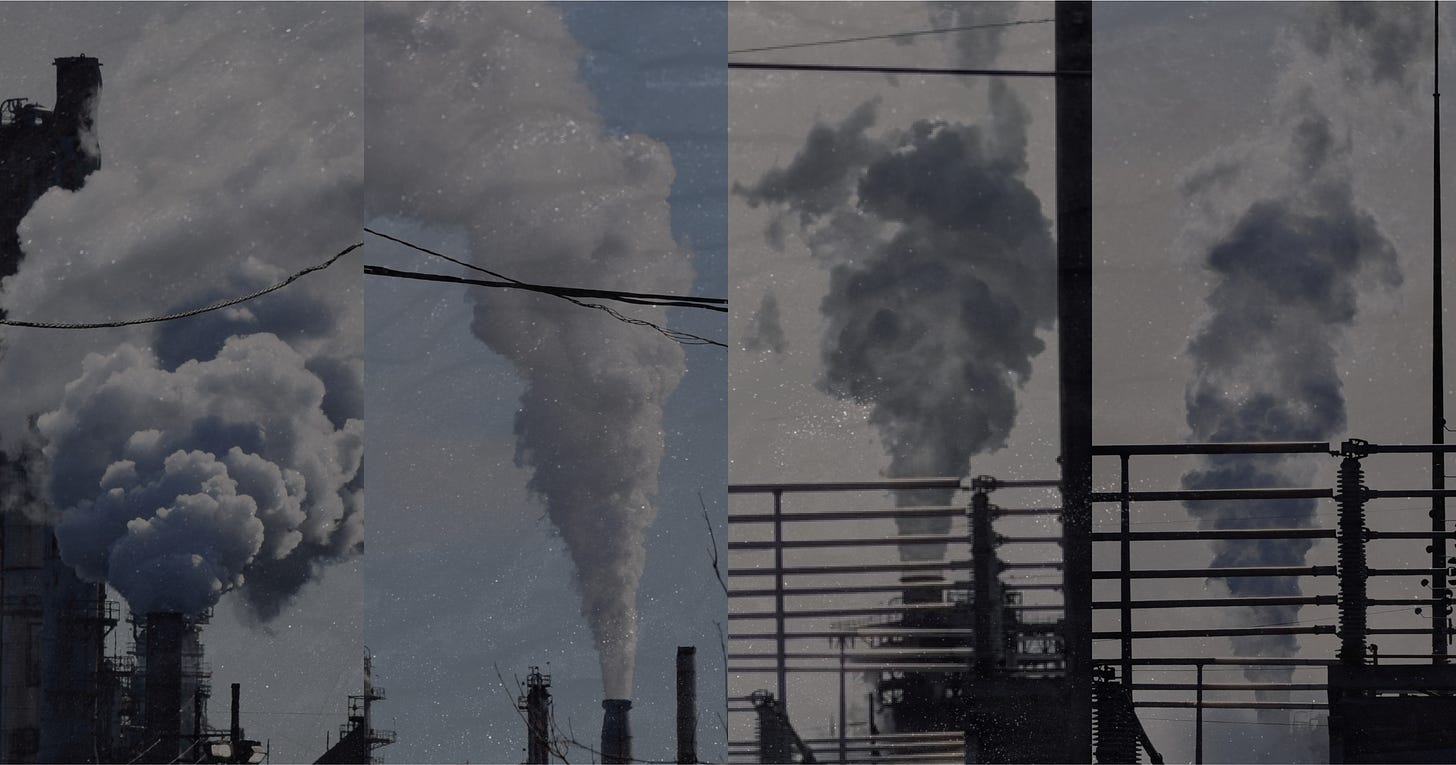How Shell Is Selling the Petrochemical Buildout as ‘Sustainable’
The oil giant says chemicals are part of the solution to climate change. Its operations in Norco, Louisiana, tell a different story.
Emily Sanders is the Center for Climate Integrity’s editorial lead. Catch up with her on Twitter here.
Oil and gas companies are investing in the buildout of more than 120 new petrochemical projects across the country, which promise to unleash untold climate destruction and public health harms in the places where they operate. Many of these facilities, largely concentrated in low-income communities and communities of color, produce chemicals from fossil fuels that are then used to make plastics. This week, ExxonKnews takes a closer look at how one oil giant is rebranding its growing petrochemical operations along the Gulf Coast.
This is a special collaboration with DeSmog, one of the leading outlets working to expose misinformation from fossil fuel interests. This reporting was made possible in part due to a media briefing sponsored by Beyond Plastics, Inclusive Louisiana, Louisiana Bucket Brigade, and The Descendants Project.
If you take Shell’s word for it, the oil giant’s growing petrochemical operations are indicative of its “commitment” to a cleaner energy future. At new and expanding facilities, from northern Europe to Pennsylvania and Louisiana, Shell is suggesting that more chemical and plastics manufacturing can help usher in environmental solutions, sustainability, and even diversity. For instance, the company’s just-published “Energy Transition Progress report” references chemicals right alongside “low carbon energy” and “renewable natural gas” as examples of the company’s stated commitment to lowering emissions.
But if you talk to some residents of “Cancer Alley,” a strip of the Mississippi River featuring more than 150 oil refineries and petrochemical plants that are frequently concentrated in Black neighborhoods and often built at the sites of former slave plantations, the picture of life next to such facilities looks a lot less rosy.
“When I enter Norco and I’m in the car with people not from here, they’re like, ‘what is that smell?’” explains 34-year-old Jamaica Hawkins, who has lived in between a Shell refinery and chemical plant in Norco, Louisiana all her life. “To me it’s normal, because I don’t know anything different.”
Hawkins lives in Norco’s historically Black community of Diamond, home to families descending from sharecroppers and, before them, enslaved people forced to work the former plantation where the chemical plant and refinery were eventually built. After generations of wildly elevated rates of childhood asthma and cancer in the community that many believe were a result of the toxic pollution overhead, a group of Diamond residents living within a few blocks campaigned for Shell to buy their contaminated properties. Shell agreed to fund their relocation in 2002 — but Hawkins’ family was one of the few who decided to stay.
Today, a peculiar sign still greets those who enter the town: residential homes are pictured next to an oil tank, surrounded by refinery towers, all basking together underneath the sun and blue sky. It’s an apt welcome to a place where the realities of everyday life seem to be in stark contrast to the green illusion marketed by the fossil fuel and petrochemical industries.
In 2021, Shell launched its “Powering Progress” strategy outlining how it plans to “transform into a net-zero emissions energy business.” Part of that strategy appears to be redefining its expanding petrochemical and plastics business as a solution to climate change. Based on recent public messaging, the oil major seems to be pinning its future on selling a central idea: that producing more chemicals used to make plastics, still overwhelmingly sourced from and powered by fossil fuels that release toxic pollution, can be inherently sustainable for people, climate, and the environment.
At the same time, after hauling in record-breaking profits last year, the oil major announced it will pause its growth in spending on renewables in order to ramp up investments in gas, made more profitable by Russia’s invasion of Ukraine. While Shell has been facing rising pressure on its fossil fuel business for years, its growing petrochemical frontier has not yet received the same level of scrutiny.
Much as Shell has touted climate pledges and commitments that often don’t match its business reality, the company’s public language around petrochemicals now uses similar tactics which seem aimed at deflecting from its harmful operations.
For starters, Shell includes “chemicals production & sales” in its reported spending on its “Energy Transition.” In its latest progress report, the company attributes nearly half of its 2022 investments in products it says will reduce its carbon emissions to its spending on “non-energy products such as chemicals, lubricants and convenience retail” — because, as the oil giant writes, they “do not produce emissions when they are used by our customers.” The report celebrates Shell’s transformation of refineries into “low-carbon energy and chemicals parks,” integrated facilities which it claims will rely in part on alternative energy sources like biofuels and hydrogen to produce the chemicals that make materials like plastics, as an attempt to decarbonize its operations.
The Shell Norco refinery and chemical plant, now christened as Shell’s first integrated “Energy and Chemicals Park” in the U.S., is one of the facilities undergoing a significant public reimagining. In recent months, the oil giant has placed numerous sponsored advertisements, which appear as “articles,” in Louisiana’s top newspapers trumpeting a new petrochemical future.
Such sponsored content — either written by the advertiser or an arm of the news company — seems intended to look and read “just like” a real news article, coming from Louisiana’s journalists. Even though the fine print notes that “this article is brought to you by Shell,” research reveals, again and again, that most readers can’t tell the difference between sponsored content and legitimate news reports.
Read the full story here.



Thank you for this.